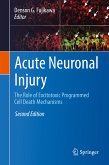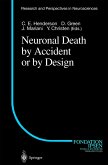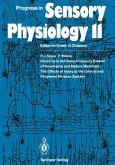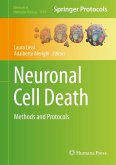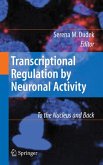Acute Neuronal Injury will be useful to neuroscientists and general cell biologists interested in cell death. The book will also be helpful to clinically oriented neuroscientists, including neurologists, neurosurgeons and psychiatrists.
About the Editor:
Dr. Denson Fujikawa is an Adjunct Professor of Neurology at the David Geffen School of Medicine at UCLA, a member of the Brain Research Institute at UCLA and a Sta
ff Neurologist at the Department of Veterans Affairs Greater Los Angeles Healthcare System. His interest in mechanisms of nerve cell death in the brain began during a two-year epilepsy research fellowship with Dr. Claude Wasterlain, from 1981 to 1983. He is a Fellow of the American Academy of Neurology and is a member of the American Epilepsy Society, American Neurological Association, International Society for Cerebral Blood Flow and Metabolism, and the Society for Neuroscience.
Dieser Download kann aus rechtlichen Gründen nur mit Rechnungsadresse in A, B, BG, CY, CZ, D, DK, EW, E, FIN, F, GR, HR, H, IRL, I, LT, L, LR, M, NL, PL, P, R, S, SLO, SK ausgeliefert werden.
Hinweis: Dieser Artikel kann nur an eine deutsche Lieferadresse ausgeliefert werden.



